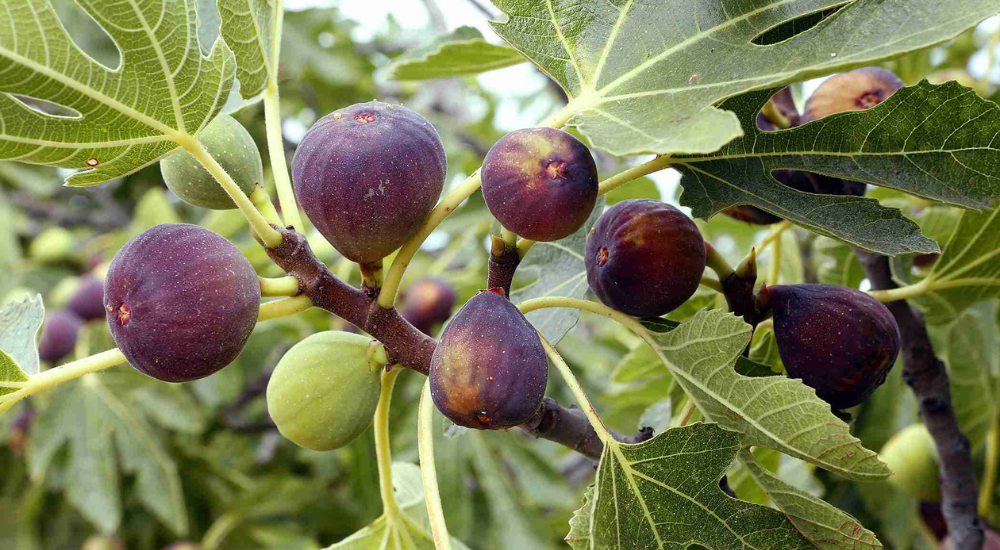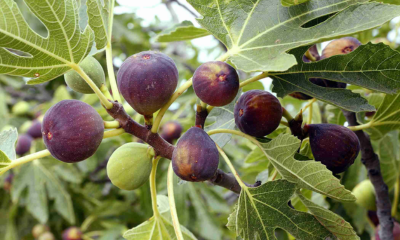What could be better than stepping into your garden this summer and picking a sun-ripened peach straight from the tree? Growing your own fruit is one of gardening's greatest rewards, and thanks to Melbourne's climate, it's easier than you might think. The secret is all in the timing.
Our cool winters, warm summers and mix of coastal and inland microclimates mean that some fruit trees thrive here better than others. Planting at the right time helps young trees establish strong roots and gives them the best start for healthy growth and future fruiting.
In this guide, we'll explore the best fruit trees to grow in Melbourne, when to plant them, and how to choose the right varieties for your garden.
Understanding Melbourne's fruit-growing conditions
Before we dive into specific varieties, it's worth understanding what makes Melbourne's climate unique for growing fruit trees.
Medium-chill climate
Melbourne sits within a medium-chill climate zone. This means it's cool enough in winter for most deciduous fruit trees to set fruit properly, but not so cold that we're limited to only high-chill varieties. Our winters provide around 400-600 chill hours (below 7°C), which suit apples, pears, and most stone fruit beautifully.
That said, frost pockets are common across Melbourne's outer-eastern and northern suburbs. Late spring frosts can damage blossoms, so frost-tolerant varieties often perform better.
Clay soil
Our heavy clay soils, especially in the western suburbs, affect which fruit tree varieties establish well and how we need to plant them. Clay drains slowly and can waterlog in winter, so choosing varieties with some tolerance for heavier soil makes life easier.
Hot, dry summers
Melbourne summers favour Mediterranean-climate trees like figs, olives, and citrus, while trees from cooler climates can struggle without adequate watering. If you're in the Bayside areas, you've got milder conditions but more wind exposure to consider.

What fruit trees to plant in Melbourne
Melbourne's climate suits a range of fruit trees, from classic apples and pears to Mediterranean favourites like figs and olives. Here's a quick overview of what thrives here, when to plant them, and any conditions to keep in mind.
Deciduous fruit trees
Deciduous trees will drop their leaves in winter and use the cooler months to rest and set fruit buds. Melbourne’s medium-chill climate suits many of these varieties, especially where airflow and morning sun are available.
Evergreen fruit trees
Evergreen trees suit Melbourne’s warm summers and are excellent options for low-maintenance gardens and coastal or windy sites.
If you're after varieties that don't need much fussing over, low-maintenance fruit trees like lemons, figs, persimmons, olives, and plums are particularly popular.
For more specific variety recommendations suited to your particular garden conditions, it's worth chatting with our team at All Green. We stock fruit trees specifically chosen for Melbourne's climate.
When to plant fruit trees in Melbourne
Timing plays a huge role in fruit tree success. In Melbourne, the ideal planting window is late winter through mid-spring, when the soil is warming and conditions support strong root development.
Winter planting is possible, but spring generally delivers the best results, especially for evergreen varieties.
When to plant deciduous fruit trees (apples, pears, stone fruit)
Best time: Late winter to mid-spring (August–October)
This allows roots to establish as the tree awakens from dormancy and prepares for new spring growth, even when purchased in a pot.
When to plant evergreen fruit trees (citrus, olives, figs)
Best time: Early to mid-spring (September–November)
Evergreens benefit from slightly warmer soil and milder overnight temperatures. Avoid planting if frost risk remains, especially for citrus and limes.
Avoid autumn planting in Melbourne
Autumn may appear mild and inviting, but it increases the chance of:
- Cold, slow-warming soil
- Waterlogging in clay-heavy areas
- Poor or stalled root development
- Increased transplant stress over winter
Ready to fill your fruit basket?
With the right timing and tree selection, Melbourne gardens can produce delicious home-grown fruit. Whether you're after easy, low-maintenance varieties or something a little more unique, by planting at the right time, you'll be giving your future harvests the best possible start.







